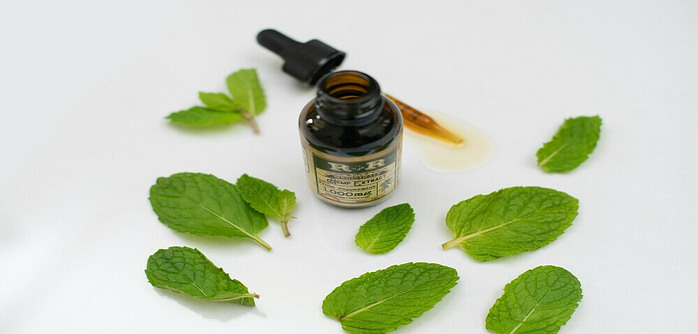
I often hear about the resurgence of natural remedies. They’re not new by any stretch, but there’s a reason their popularity holds strong. The wisdom of traditional medicine has stood the test of time, and today, people everywhere are revisiting these age-old practices for health and wellness.
The appeal of these remedies isn’t just in their history. Science has started to pull back the veil, offering explanations for why certain herbs and plants seem to have therapeutic effects. This blend of past wisdom and modern understanding is compelling.
Why is this important? People are increasingly seeking out natural treatments. They’ve become a significant component of modern healthcare as many look to balance conventional medicine with holistic alternatives.
With this said, my goal is not to claim natural remedies as a panacea. That’s why I emphasize realistic expectations. Not every health issue can or should be treated at home with herbs and oils. Some conditions require medical intervention. However, for common ailments, there’s potential for relief right from nature’s bounty, an option that’s typically easier on the wallet than conventional treatments.
Gentle Relief: Natural Remedies for Everyday Complaints
Natural remedies offer a softer approach to health management, often with fewer side effects compared to conventional medications. I’m here to discuss how you can find relief from common problems using ingredients that may already be in your pantry or easily sourced from your local market.
Headaches can be a real nuisance, disrupting your day. To combat them, try peppermint oil. A small dab applied to your temples may provide a soothing sensation. Hydration is also key; sometimes a headache is simply a sign of dehydration, so reach for a glass of water before anything else.
For digestive troubles, ginger has been hailed for centuries as a stomach settler. Eating a piece of ginger or sipping ginger tea can ease nausea. Probiotic foods like yogurt introduce beneficial bacteria to your gut, promoting a healthy digestive system.
Suffering from a sore throat? Honey has natural antibacterial properties and can offer immediate relief when mixed with warm water or tea. A saltwater gargle can also reduce swelling and discomfort.
Anxiety and stress are prevalent issues. A cup of chamomile tea might provide calming effects. Furthermore, integrating mindfulness techniques, such as deep breathing exercises or meditation, can potentiate the relaxation you seek.
When it comes to the common cold, don’t underestimate the power of herbal teas. Ingredients like elderberry, Echinacea, and licorice root have been used to support the immune system and might help reduce the duration of cold symptoms.
After exploring these gentle, affordable remedies for everyday complaints, it’s important to also talk about the more impactful, long-term financial benefits of choosing natural remedies. A smooth transition from immediate relief to considering the broader economic implications leads to the next crucial part of this discussion.
Affordability and Accessibility: The Economic Advantages of Natural Treatments
I understand that cost is a major factor when it comes to healthcare. With pharmaceutical prices on the rise, many are turning to natural remedies as a more budget-friendly alternative. Let’s compare the costs between pharmaceuticals and natural ingredients. It’s clear that in many cases, using herbs and other natural substances can be significantly less expensive.
Preventive health is also a realm where natural remedies shine. Incorporating routine herbal use or other natural practices can help maintain health and prevent illness, which in the long run reduces medical costs. Think about it: investing in a bottle of echinacea extract during flu season might save you from needing a doctor’s visit or a course of prescription medication.
Have you ever considered growing your own remedies? It’s not only rewarding but tremendously cost-effective. Planting a small herb garden with essentials like chamomile, mint, and lavender provides a sustainable source of remedies at a fraction of what you might spend at the store. Plus, there’s the added benefit of knowing precisely where your remedies come from, with no hidden additives or processes.
Now, it’s important to address the role of insurance in the context of natural health options. While many insurance plans have yet to cover alternative treatments fully, the landscape is changing. I advise keeping up with your insurance policy updates and advocating for coverage of natural treatments when possible.
E-E-A-Ting Well: Ensuring Quality and Safety in Natural Remedies
I reassure you that selecting the right natural remedies requires just as much care as choosing over-the-counter drugs.
Seek credible sources for product information and carefully research any herbal product you consider incorporating into your health routine.
I can’t stress enough the importance of really communicating with a healthcare provider before trying a new treatment, especially if you have pre-existing conditions or are taking other medications.
Awareness is crucial for mitigating risks, such as unwanted side effects or allergic responses, even from something as seemingly harmless as a cup of herbal tea.
And remember, the world of natural remedies doesn’t stand still. It’s constantly evolving with new research and discoveries.
Stay on top of the latest studies and findings to ensure the choices you make are informed and prudent for your health.

When it comes to natural remedies I believe that we are going back to the old school or the days of our forefathers when all they had and relied on was natural stuff that brought.
I love natural stuff because of not have to deal with side effects like modern medicine has, Morden medicine may work faster but sometimes the side effects can be dangerous causing other health issues and even in some cases death. So let us as much as possible stay with natural remedies.
Absolutely, Norman. I’ve always believed that if you get right down to it, the basic necessities of a human being are food, water, and air. We have to eat, drink, and breathe. If you do all of those things in the most optimal way, eating the right foods, drinking clean water, and breathing clean air – AND in the right quantities and ratios, that’s probably the best way to avoid disease. Stress is absolutely a factor, but that kind of boils down to what it does to your breathing, making it more shallow and starving you of oxygen. But yeah, it’s all the basics. We’ve overcomplicated this grossly over the years and it’s time to get back on track. Anyhow, thanks for stopping by!
Mark
What a beautifully practical and heartwarming guide to natural remedies! I love how you empower readers to take everyday, inexpensive actions—like growing a small herb garden with chamomile, mint, and lavender—for remedies that are both effective and accessible. Your reminder to treat natural options with the same care we give OTC products—checking for quality, safety, and credible sourcing—is so important and often overlooked. I’m especially intrigued by the preventive angle you emphasized—for instance, keeping echinacea on hand during flu season to possibly avoid a doctor’s visit and save on medical costs. If you had to pick just one remedy from the garden to rely on most, which would it be—maybe lavender for relaxation or mint for digestive relief? I also love the idea of mixing different herbs for a more versatile remedy. Have you explored combining these herbs in creative ways, like making a multi-purpose tincture or herbal blend that could address several common ailments at once?
Personally, I’d go with mint. Mostly because digestive problems are all too common, these days. It seems like no matter how hard you try, you can’t get away from chemicals in your food and water. That can be brutal on the digestive system and it’s probably going to get worse, since even organic food isn’t immune anymore.